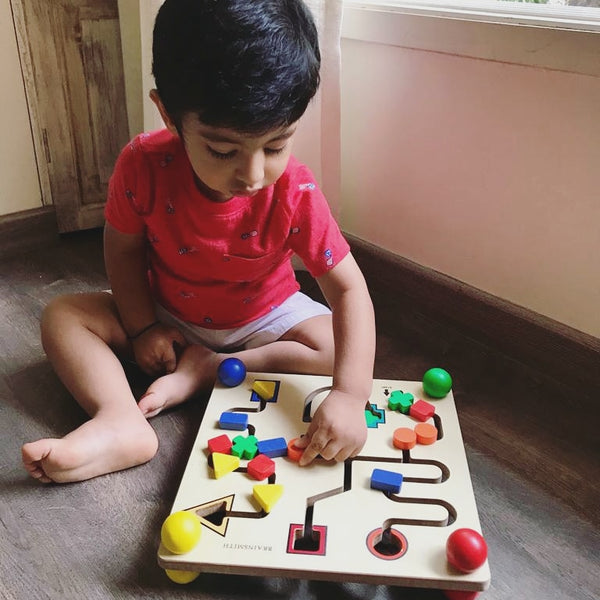All about Solitary Play
Posted on July 07 2022

Solitary play, as the term implies, is solo play, The little ones start playing by themselves at this point. As a result of this, babies learn to entertain and stay busy by themselves. Additionally, it prepares them to become independent in the future.
Could be an excellent way for parents to get their chores done!
While it might be a new term you hear or read about, It is actually regarded as one of the phases of a child's development. And ofcourse, a parent’s reaction to seeing their children playing alone may be strange or overwhelming. It may appear depressing even, but it's actually enjoyable! Children throughout this time are fully independent, in charge, and learning various skills.
Why does solitary play happen? Why do kids like playing alone? One of the possible reasons for solitary play among young children could be kids might not have developed socially to play with others yet or it could be because they choose to play alone.
In 1932, sociologist, Mildred Parton at the Institute of Child Development, Minnesota, classified the 6 stages of play. Her theory was that as kids grow older, they will develop communication skills and have more opportunities to interact with other children, their solitary play would become more social. The 6 stages include:
Unoccupied Play: When little one is just starting to take in the world around them without much interaction beyond observation. They are fascinated by their surroundings!
Solitary Play: When babies start reaching and interacting with other objects. They still don’t understand or are aware that others around them could be playing too. This stage involves their pure wonderment towards different objects.
Onlooker Play: Onlooker play is when your little one observes others around them. They stop and watch what you are doing. It maybe anything, like chores, playing or just working on your computer.
Parallel Play: When little ones start playing in the same vicinity as others. They still don’t interact with them but playing side by side on their known or playing parallel from one another.
Associative Play: Is when your little one is parallel playing but at the same time starts having little conversation with others. They do their own activities but start conversing or socialising with other kids in the same vicinity.
Cooperative Play: Cooperative play, as the name suggests, is when your little ones play with others cooperatively. They become interested in both the other person and their activity.
Is Solitary play good? How so?
If your little ones prefer to play alone, there is nothing wrong with it, in fact, it may be very healthy for them. Kids benefit from solitary play by developing or learning new motor and cognitive skills. For young children, it is an imaginative and creative time. They are thinking a lot at this time. Hence, this is a really beneficial phase of development that teaches young children that having fun doesn't require anybody else's company. They are capable of enjoying themselves. They become more independent, the ability to concentrate improves and as a result, helps them feel more confident when interacting with other children. Who knew being alone would be the key to becoming more social?
Have you noticed your little one playing independently? If so, what activities do they like? Write to us at info@brainsmith.in
